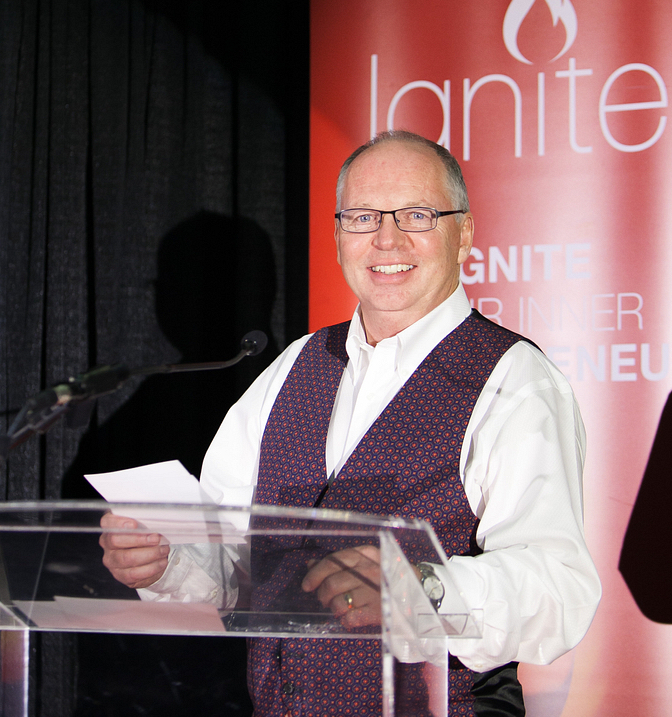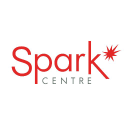Home » The Elevator (pitch) To Success
The Elevator (pitch) To Success

For startups and entrepreneurs, communicating your product’s value to prospective customers and investors is vital to success.
Robert Weese, founding partner of B2B Sales Connections and Advisor to Spark Centre clients, has worked with startup companies in medtech, high tech, software, broadcasting, manufacturing and many more diverse markets, helping them develop strong sales and presentation skills to quickly accelerate their sales and secure large investment deals.
And Robert’s expertise in this area is well-known. Prior to B2B Sales Connections, he joined a business Fortune 500 company whose business unit was losing money, customers and sales staff. As Director of Sales, Robert brought in a new National Sales Manager (now his business partner) and together they turned a losing division into the fastest growing and most profitable unit for five years straight.
Spark Centre sat down with Robert to learn more about how his background has equipped him to lead startups and entrepreneurs with technical backgrounds in effectively pitching and communicating their products and companies, his advice for entrepreneurs and more.
Q: You don’t only have vast experience in sales but you also have a strong background in broadcasting. How has that helped you hone your sales pitching skills?
Robert: I have always been comfortable public speaking and l went to college for Broadcasting. I spent 8 years working as an “on air” DJ and over 30 years running my own entertainment company as a very successful “side hustle”. I went from on air to selling radio advertising and then moved to business technology sales.
I sold innovative new products that no one had ever seen. I was very good at showing people how a new unknown technology could make their business better. Naturally, with my broadcasting background I was frequently asked to train other sales teams or speak at industry events about the new technology. Broadcast was the best complement to my sales skills.
Q: You have helped entrepreneurs with crafting their pitches for CBC’s Dragon’s Den. What inspired you to offer this?
Robert: It started with the Spark Centre “Ignite Pitch Contest” 5 years ago. Most start-ups looking for investment go on and on about how great their technology is, but they fail to address what investors really want to know. How can I make money if I invest in your company?
My job was to get them to deliver a clear investment pitch in 3 minutes. Some of these companies were invited to audition for Dragons’ Den and asked me for help. I now offer a workshop each January. To date I have helped over 20 companies get on the show. The biggest offer to so far was a $500K investment and there have been many smaller deals. The important thing to remember is that Dragons’ Den is entertainment first so if you screw up you do so on national TV in front of 3 million viewers.
“Most startups looking for investment go on and on about how great their technology is, but they fail to address what investors really want to know. How can I make money if I invest in your company?”
Q: What do you feel is the biggest challenge that founders of tech innovation face when communicating their value to prospective customers and investors?
Robert: They build prototypes and then try to make them better. When they meet customers, they talk about their technology and its features. Customers don’t buy features. They buy outcomes. You need to help them understand how your product will make their life and their business better. Technical founders love to talk about A.I. machine learning, blockchain, and disruption but fail to communicate what this means for their customers.
At Spark Centre you advise clients on developing strong sales and presentation skills. Why do you feel mentorship for startups in this area is a key component to their success?
The Sales/Marketing advisors at Spark challenge the founders to take off their “technical” hats and learn what really matters to potential customers. Look at the latest APPLE ™ commercials. They don’t talk tech, they give the audience a vision of how their life will be better if they buy the next iPhone. They need to think beyond product development and design to understand customer development, and that is difficult for technical founders.
Q: What would you consider to be a highlight in your experience as a Spark Centre Advisor?
Robert: I helped Spencer Turbitt, CEO of iApotheca, develop his sales outreach strategy and a plan of execution. In three years, he went from no sales to over 1,000 pharmacies. He has gone on to land a major investment to help scale his company even further.
Q: What is your biggest piece of advice for startups?
Before you invest too much time, money and sweat in building your product go out and talk to 30-50 potential customers and find out if you are building a product that they “must have” and are willing to pay for. You may be surprised by the answers.
Spark Centre
https://sparkcentre.org
Helping innovative companies start, grow and succeed. Spark Commercialization and Innovation Centre is one of eighteen not-for-profit Regional Innovation Centres (RICs) that form part of the Ontario Network of Entrepreneurs (ONE). The centre works to improve competitiveness and visibility of Durham Region and Northumberland County as a world-class innovation cluster. Spark Centre works with clients to develop individualized plans for success. We connect start-ups to business and research networks, learning tools, business coaching, mentorship, and access to funding and investment.



